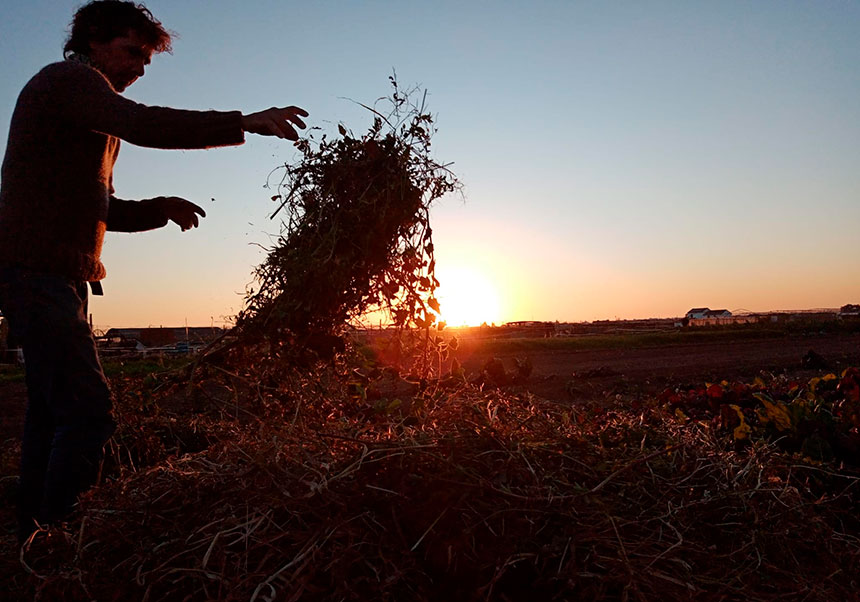
The Agroecological Market of the UV has local products with a social and solidarity approach. The projects participating in the Market have the traditional organic seal of the Committee on Organic Farming and/or the seal of the Participatory Guarantee System (PGS).
We are once again facing the prospect of a long, hot summer. The drought in the Spanish peninsula is very worrying and the production of olives, cereals and meat is being severely compromised by the lack of rain and the increase in costs, which means lower production, greater import of products, losses for producers and a shortage of product with the consequent increase in prices, especially in industrial agriculture.
The Office of the Vice-Principal for Sustainability, Cooperation and Healthy Life has wondered how this affects the participants of the UV Agroecological Market. Xavo, from the Ca Malva project, an agroecology experience with animals in l'Horta Nord, shares his testimony:
“Local production based on direct-sale agroecology is more resilient to these seasonal changes”.
“On the one hand, the proximity to the sea means that temperature changes are not so extreme and the existence of wells with water reserves means that we don't notice the scarcity of rain so much. On the other hand, crop diversification allows us not to risk all our production on a single product”.
“The increase in temperature and the prolongation of the warm season has an impact on pests (insects) and diseases (fungi) affecting crops, which in conventional agriculture means a greater dependence on chemical products and therefore they are affected by the rising cost of these chemicals”.
“Meanwhile, those of us who practice agroecological farming, tackle these pests and diseases by favouring the biodiversity that naturally keeps them at bay. In addition, the diversity of the crops we grow allows us to compensate for what may affect a certain product with other varieties. By growing native species that are more adapted to these variations than hybrids or imported species, we are also less affected”.
“We do notice changes in the calendar and harvesting: artichokes are planted and harvested later (and with lower production) because the cold weather arrives later, tomatoes can be grown for a longer period, but in general, small local agroecological producers are more resilient to these changes and the crisis that seriously affects industrial, traditional and monoculture agriculture, we do not experience it as much”.








